I know this is a long post, but if you take the time to read through it and commit to the steps, you’re on the path to achieving skin that feels as soft and smooth as a baby’s. Imagine the confidence and happiness that come with having radiant, touchably soft skin! Each tip and technique in this guide is designed to help you get the best results naturally, bringing back that healthy glow and boosting your self-assurance. So, let’s dive in—your journey to beautiful, best tips how to get baby-soft skin starts here!
Table of Contents
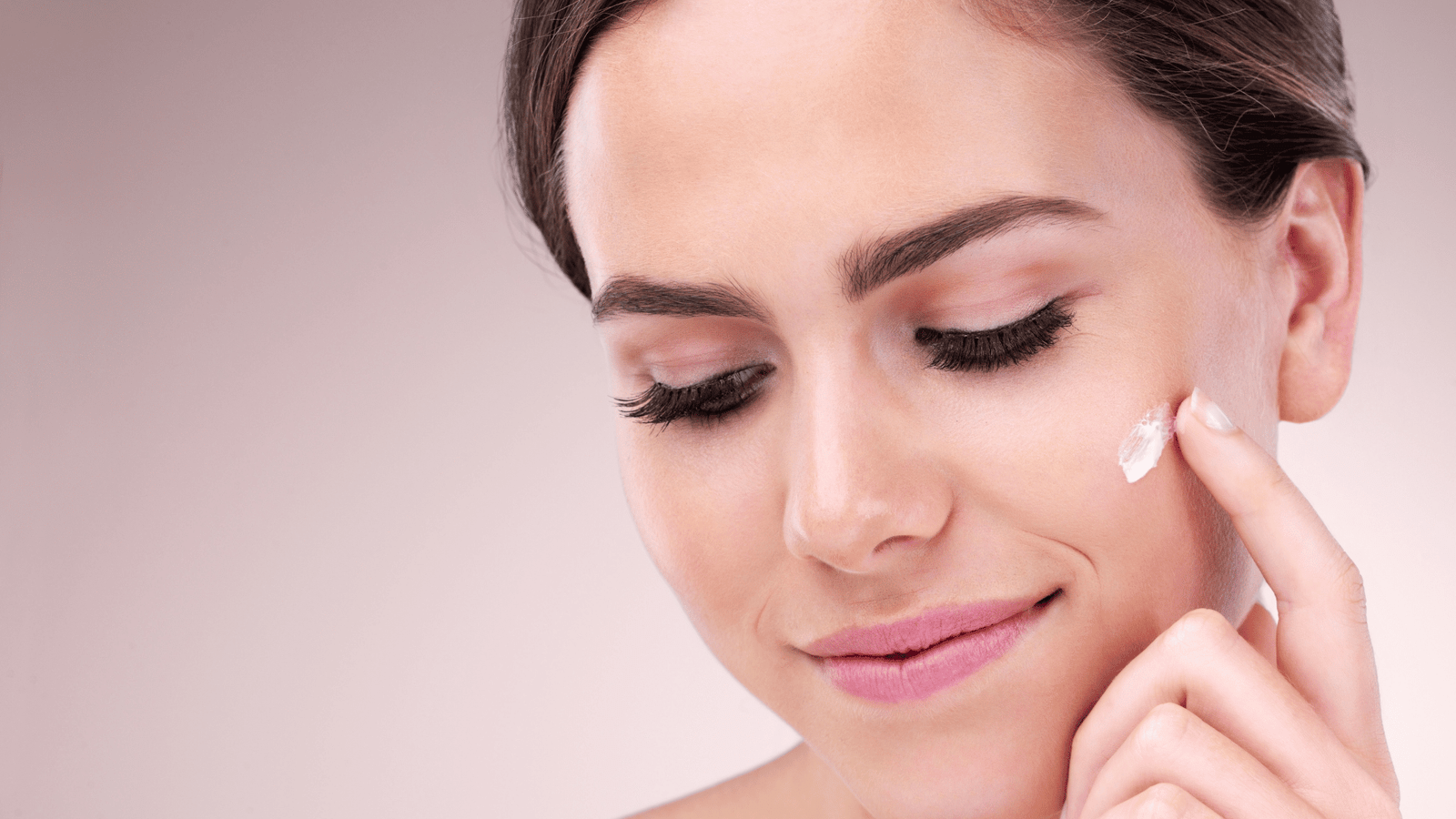
So Ready To Get Baby-Soft Skin?
This comprehensive guide will help you achieve the silky-smooth-like baby skin, radiant skin you’ve always dreamed of, using simple ingredients from your kitchen. Your skin deserves the best care, and you don’t need expensive products or harsh chemicals to get that coveted baby-soft texture. Whether you’re dealing with dry patches, or rough spots, or just want to enhance your skin’s natural glow, these gentle, chemical-free methods will transform your skincare routine. Get ready to discover how natural ingredients can work wonders for your skin’s health and appearance.
Key Takeaways:
- Daily exfoliation removes dead skin cells and promotes cell turnover, leading to smoother skin texture
- Regular use of natural moisturizers like coconut oil, shea butter, or aloe vera helps maintain skin hydration
- A consistent skincare routine that includes gentle cleansing and protection from sun damage is crucial for soft skin
- Maintaining proper hydration levels by drinking adequate water directly impacts skin softness and elasticity
- DIY face masks using ingredients like honey, yogurt, and avocado provide natural nutrients for skin rejuvenation
- Getting adequate sleep and rest allows skin cells to repair and regenerate naturally
- A balanced diet rich in vitamins A, C, and E supports healthy skin from the inside out
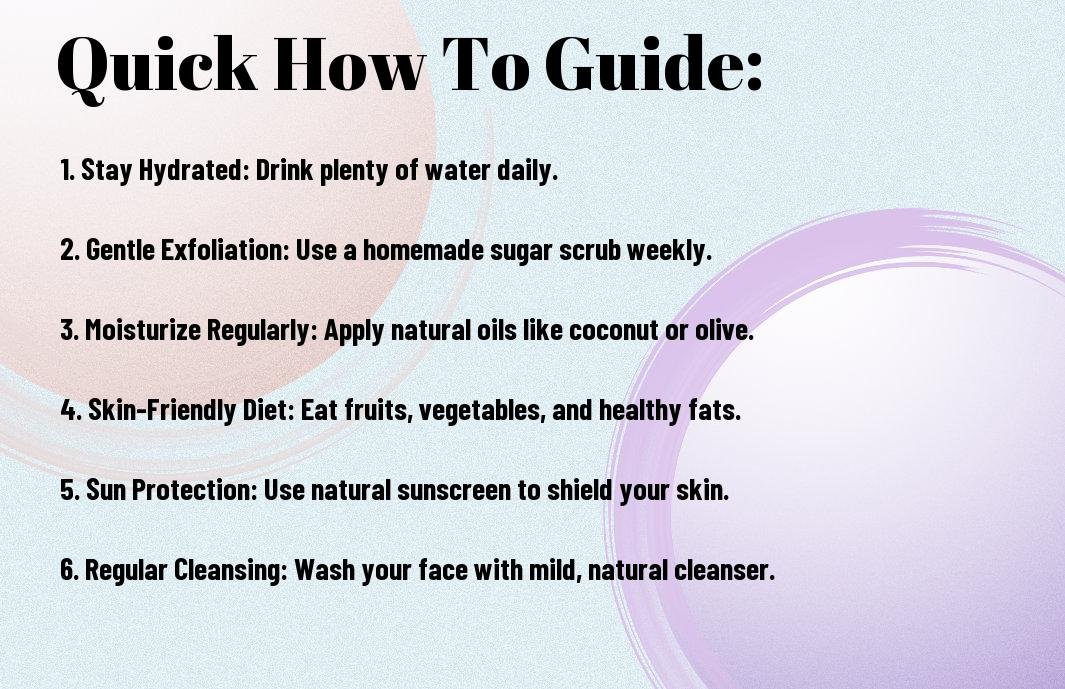
Understanding Your Skin’s Current State
Common Skin Texture Issues
LLittle imperfections like rough patches, dry spots, and uneven texture can make your skin feel less than perfect. You might notice these issues particularly during seasonal changes or after using harsh skincare products. Perceiving these concerns early helps you address them more effectively. For more on managing these specific skin concerns, check out our post on How to Treat Rough Patches and Dry Spots Naturally.
Factors Affecting Skin Softness
On any given day, your skin faces numerous challenges that affect its softness and texture. Here are the main factors you should consider:
- Environmental stress (pollution, UV rays) – Learn more about protecting your skin from environmental stressors in How to Protect Your Skin from Environmental Stressors.
- Dehydration and water intake
- Diet and nutrition
- Sleep quality
- Hormonal changes
Another important aspect to consider is how your daily habits impact your skin’s health. Research shows that 75% of skin aging is caused by external factors that you can control. Perceiving these connections helps you make better choices for your skin’s health.
Benefits of Natural Skin Care
There’s something special about using natural ingredients for your skincare routine. Unlike commercial products that often contain harsh chemicals, natural remedies work with your skin’s biology to promote lasting softness and health. Studies indicate that natural ingredients can be just as effective as synthetic ones, with a lower risk of adverse reactions. Discover the Top 5 Natural Ingredients for Softer Skin to find out more.
This gentle approach to skincare aligns perfectly with your body’s natural processes. By using ingredients like honey, aloe vera, and coconut oil, you’re providing your skin with nutrients it can readily recognize and utilize. For a deeper dive into these ingredients, read our guide on Best Natural Ingredients for Baby-Soft Skin.

Essential Components of Baby-Soft Skin
While achieving baby-soft skin might seem like a complex goal, understanding the key components that contribute to skin’s softness can help you create an effective natural skincare routine. Your skin’s health depends on several imperative elements working together harmoniously.
Natural Moisture Barriers
Barriers protecting your skin’s moisture are vital for maintaining that coveted baby-soft texture. Your skin naturally produces oils and lipids that form a protective layer, keeping moisture locked in and environmental irritants out. When this barrier is compromised, your skin becomes more susceptible to dryness, irritation, and premature aging. To learn more about keeping your skin barrier strong, check out How to Protect Your Skin’s Natural Barrier.
You can strengthen your skin’s natural barriers by incorporating omega-rich oils and ceramides into your skincare routine. These ingredients help repair and maintain your skin’s protective layer, resulting in softer, more resilient skin that retains moisture for longer periods.
Collagen and Elastin Production
Little do many people realize that your skin’s softness is directly linked to its collagen and elastin levels. These proteins are responsible for maintaining your skin’s structure and elasticity, with collagen accounting for approximately 75% of your skin’s composition.
Another important aspect of maintaining healthy collagen and elastin levels is protecting them from damage. UV exposure can reduce collagen production by up to 20%, making sun protection an imperative part of your skincare routine. Natural ingredients like vitamin C and peptides can help stimulate your body’s production of these vital proteins. To understand more about collagen’s impact on skin health, check out Top Natural Ingredients for Boosting Collagen.
Skin Cell Turnover Rate
While your skin naturally sheds dead cells and produces new ones, this process slows down as you age. In younger skin, cell turnover happens every 28 days, but this cycle can extend to 45-60 days as you get older. Supporting your skin’s natural renewal process is key to maintaining its soft, smooth texture.
Skin cell turnover plays a significant role in your complexion’s appearance and feel. When dead cells accumulate on your skin’s surface, they can create a rough, dull texture. Regular gentle exfoliation can help remove these cells, revealing the softer, newer skin underneath and encouraging a healthier cell renewal cycle. For tips on exfoliating safely, see our post on Best Exfoliation Techniques for Softer Skin.
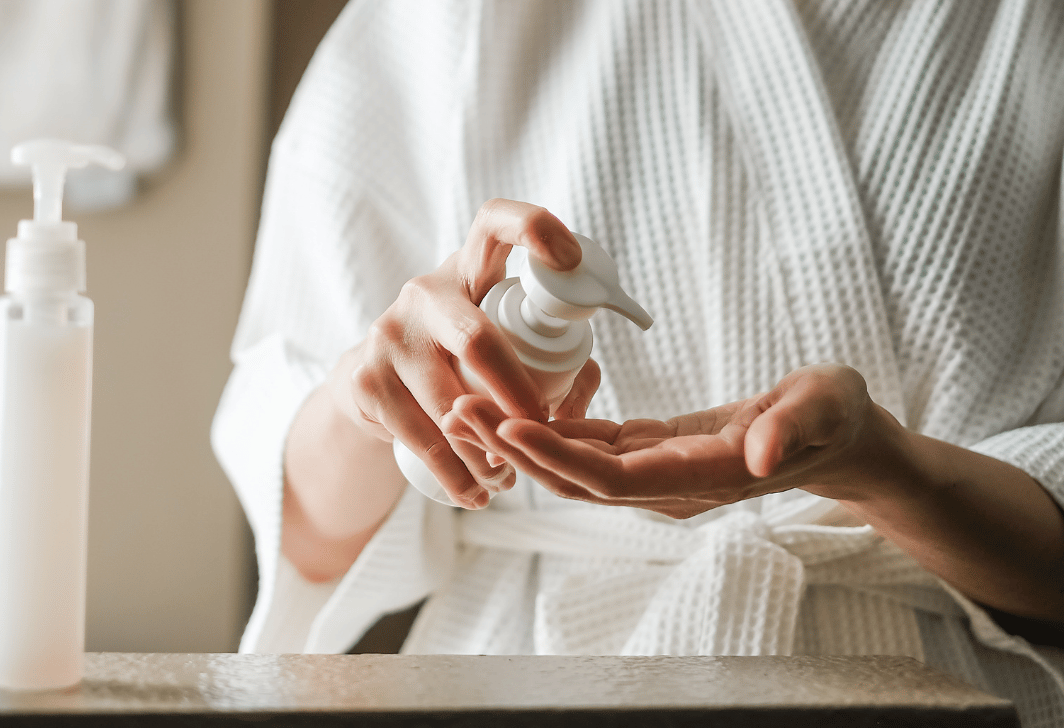
Natural Exfoliation Methods
Keep your skin glowing and smooth by incorporating natural exfoliation into your skincare routine. Regular exfoliation helps remove dead skin cells, stimulates cell turnover, and reveals fresher, more radiant skin underneath. If you’re looking to maintain that healthy, luminous look, explore our Essential Tips for Lasting Skin Radiance.
Kitchen Ingredients for Gentle Scrubs
For the gentlest and most natural approach to exfoliation, your kitchen holds a treasure trove of effective ingredients. Common items like brown sugar, coffee grounds, oatmeal, and sea salt can serve as excellent natural exfoliants. These ingredients are not only cost-effective but also free from harmful chemicals that might irritate your skin. Check out our list of Top Natural Ingredients for Softer Skin to see which items work best for you.
DIY Exfoliant Recipes
Making your own exfoliants at home gives you complete control over the ingredients that touch your skin. You can create a gentle coffee scrub by mixing used coffee grounds with coconut oil, or prepare a soothing oatmeal scrub by combining ground oatmeal with honey and a splash of milk. If you’re looking for more DIY skincare ideas, read our post on Simple DIY Skin Care Treatments.
Exfoliation should be tailored to your skin type, and DIY recipes allow you to adjust the ingredients accordingly. Be careful not to over-exfoliate, as this can lead to skin irritation and sensitivity. Most people achieve the best results by exfoliating 2-3 times per week.
Proper Exfoliation Techniques
Methods of application matter just as much as the ingredients you use. Always start with clean, damp skin and apply your chosen exfoliant using gentle, circular motions. Avoid applying too much pressure, as this can cause micro-tears in your skin.
Techniques for proper exfoliation include working from your neck upward on your face and from your feet upward on your body. This approach helps promote healthy circulation and ensures you don’t miss any areas. Always follow up with a moisturizer to lock in hydration and protect your newly revealed skin. For ideas on which moisturizers work best, read Top Natural Moisturizers to Achieve Baby-Soft Skin.
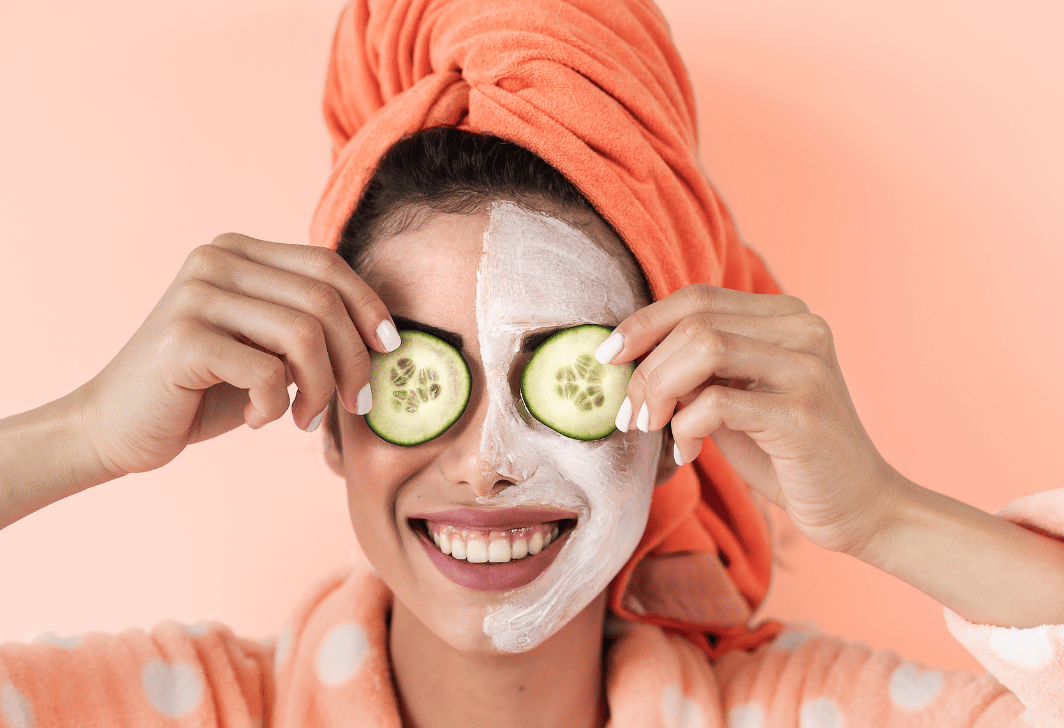
Deep Hydration Strategies
Unlike store-bought products loaded with chemicals, natural deep hydration methods can help you achieve that coveted baby-soft skin while being gentle and safe for regular use. Your skin’s moisture barrier needs consistent care, and these strategies focus on enhancing your skin’s natural ability to retain moisture – how to get baby-soft skin.
Natural Oils and Their Benefits
Natural oils are your skin’s best friends when it comes to deep hydration. Oils like coconut, jojoba, and argan can penetrate deeply into your skin, providing lasting moisture that synthetic products often can’t match. Consider trying Lavender Massage Oil with Collagen and Stem Cells, which is known for its hydrating and skin-smoothing properties. It’s especially effective for improving skin texture and reducing the appearance of scars and stretch marks.
You’ll find that incorporating oils into your skincare routine can reduce water loss by up to 50% from your skin’s surface. The key is to apply them to slightly damp skin, which helps lock in additional moisture and enhances absorption.
Moisturizing Face Masks
There’s nothing quite like a homemade face mask to give your skin that extra boost of hydration. Ingredients like honey, avocado, and yogurt can create powerful moisturizing treatments. However, for daily use, try a gentle option like New York Biology Dead Sea Mud Mask, which contains niacinamide to improve texture and maintain hydration while cleansing.
This natural approach to skin hydration works because ingredients like honey can hold up to 1,000 times their weight in water, making them excellent humectants for your skin. When you combine these ingredients, you’re creating a treatment that both hydrates and nourishes your skin cells.
Overnight Hydration Treatments
Overnight treatments can work wonders while you sleep. A few drops of CeraVe Hydrating Hyaluronic Acid Serum applied before bed can lock in moisture and boost your skin’s natural hydration. This serum provides intense moisture, helping to plump your skin and support its protective barrier.
Benefits of overnight treatments extend beyond basic hydration – they can help reduce fine lines, improve skin elasticity, and give you that fresh, dewy look in the morning. Your skin absorbs products more effectively during sleep, as it’s not exposed to environmental stressors or makeup.

Nutrition for Glowing Skin
Your diet plays a fundamental role in maintaining healthy, baby-soft skin. Adding nutrient-rich foods and staying hydrated is essential, but complementing this with nourishing skin products can enhance your results. For instance, Aveeno Baby Daily Moisture Lotion, formulated with natural colloidal oatmeal, soothes and protects sensitive skin, making it feel incredibly soft and smooth. For tips on pairing skincare products with a nutrient-rich diet, check out How to Create the Perfect Skin Routine.
Skin-Nourishing Foods
One of the best ways to achieve that coveted glow is by incorporating specific foods into your daily menu. Your skin will benefit from omega-3 rich foods like salmon, walnuts, and chia seeds. Adding colorful fruits and vegetables, particularly those high in antioxidants like berries, sweet potatoes, and leafy greens, can help protect your skin from environmental damage. Get more ideas in Top Foods to Eat for Youthful, Glowing Skin.
You can boost your skin’s natural radiance by including foods rich in healthy fats, such as avocados and olive oil. These ingredients help maintain your skin’s moisture barrier and promote that sought-after dewy, plump appearance – how to get baby-soft skin.
Essential Vitamins and Minerals
Minerals and vitamins are your skin’s best friends when it comes to maintaining its youthful appearance. Your body needs zinc for collagen production, selenium for skin protection, and iron for healthy blood flow to skin cells. You can find these minerals in foods like pumpkin seeds, Brazil nuts, and lean meats.
Understanding the right balance of vitamins and minerals can make a significant difference in your skin’s health. Vitamin C supports collagen production, vitamin E provides antioxidant protection, and vitamin D helps with skin cell growth and repair. For more on boosting these nutrients naturally, see our Guide to Vital Vitamins for a Youthful Complexion.
Hydration Guidelines
Vitamins and minerals work best when your body is well-hydrated. Drinking at least 8 glasses (2 liters) of water daily helps flush out toxins and keeps your skin cells plump and healthy. Green tea can be an excellent addition to your hydration routine, offering both moisture and antioxidant benefits. Learn about other hydration tips in 5 Simple Habits for Naturally Hydrated Skin.
The connection between hydration and skin health is direct and powerful. When you’re properly hydrated, your skin appears more radiant, and fine lines are less noticeable. Adding water-rich foods like cucumber, watermelon, and celery to your diet can help you meet your daily hydration needs while providing additional nutrients for your skin.
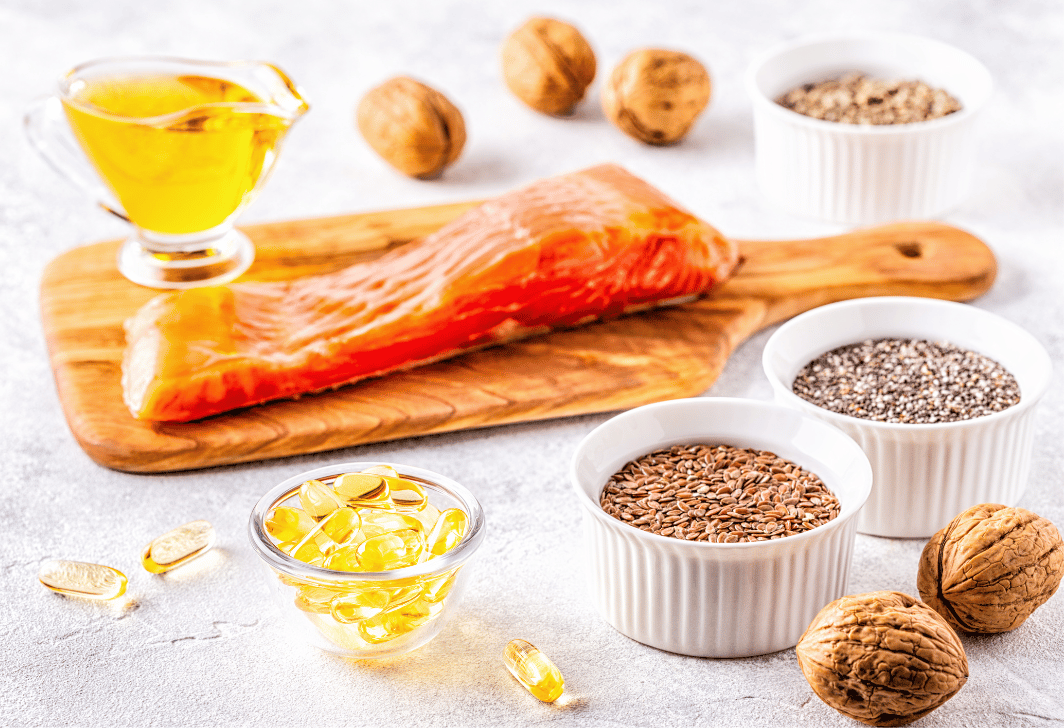
Natural Ingredients for Skin Softening
Your journey to baby-soft skin begins with nature’s own ingredients. While there are countless commercial products available, natural solutions can be just as effective and gentler on your skin. For comprehensive guidance on achieving smoother skin, check out these 12 easy tips for achieving perfectly smooth skin along with the natural remedies below.
Herb-Based Solutions
Some of the most effective natural skin softeners can be found right in your herb garden. Chamomile, lavender, and rosemary are particularly beneficial for their soothing and softening properties. You can create simple infusions by steeping these herbs in hot water and using them as a gentle skin toner. Discover other ways to keep your skin calm and radiant with our Top 5 Herbal Remedies for Skin Health.
Your skin can benefit greatly from herbs like calendula and aloe vera, which contain natural compounds that help maintain skin moisture and promote cell renewal. These herbs can be used in homemade masks or added to your regular moisturizer for enhanced effects.
Fruit Enzymes and Applications
Applications of fruit-based treatments offer a natural way to achieve softer skin through gentle exfoliation. Papaya, pineapple, and mango contain enzymes that help remove dead skin cells while nourishing your skin with imperative vitamins. For additional ways to use fruits in skincare, explore our Ultimate Guide to Fruit-Based Skin Treatments.
Understanding the power of fruit enzymes can help you make the most of these natural treatments. These enzymes work by breaking down the proteins in dead skin cells, revealing the softer, newer skin underneath. You can apply mashed fruits directly to your skin or mix them with honey for added benefits.
Natural Butter and Oils
If you’re looking for deep moisturizing, natural butter and oils are your best allies. Shea butter, cocoa butter, and coconut oil penetrate deeply into your skin, providing long-lasting hydration and softness. These ingredients are particularly effective when applied to slightly damp skin after bathing. For more on intensive hydration, check out How to Keep Your Skin Hydrated and Soft.
This approach to natural skin care is not only effective but also safe for most skin types. The fatty acids and vitamins present in these natural butter and oils help strengthen your skin’s natural barrier, leading to improved texture and lasting softness. You can use them alone or create your own blend with imperative oils for added benefits – how to get baby-soft skin.
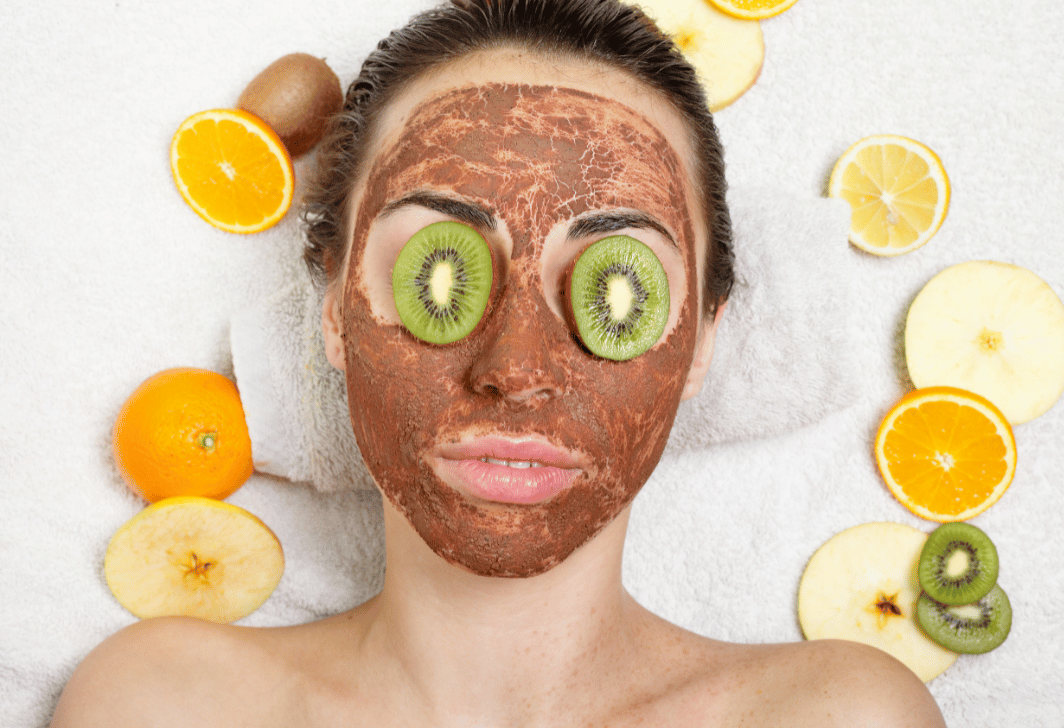
DIY Skin-Softening Recipes
Many natural ingredients found in your kitchen can transform your skin into a silky-smooth canvas. Creating your own skin-softening treatments at home not only saves money but also ensures you know exactly what you’re putting on your skin. For more DIY skincare ideas, see our guide on Easy Homemade Treatments for Healthier Skin.
Morning Treatment Formulas
One of the most effective morning treatments combines honey and yogurt—a duo that works wonders for your skin. Mix 2 tablespoons of plain yogurt with 1 tablespoon of raw honey to create a gentle yet powerful moisturizing mask. Apply this mixture to your face and neck, leave it on for 15 minutes, then rinse with lukewarm water. Check out more Simple Morning Routines for Glowing Skin for additional ways to enhance your skin care.
Evening Care Solutions
To give your skin the overnight nourishment it needs, try making a simple but effective sleeping mask using mashed avocado and coconut oil. This combination provides deep hydration and crucial fatty acids that work while you sleep to soften and repair your skin.
With regular use of these evening treatments, you’ll notice your skin becoming increasingly supple and smooth. Be careful not to use too much product—a thin layer is all you need for optimal results. For more overnight tips, explore Best Nighttime Skincare Tips for Radiant Skin.
Weekly Special Treatments
If you’re looking to take your skincare routine to the next level, consider incorporating a weekly exfoliating treatment. Mix 3 tablespoons of finely ground oatmeal with 2 tablespoons of honey and 1 tablespoon of olive oil to create a gentle yet effective scrub that removes dead skin cells while moisturizing.
This weekly ritual can make a significant difference in your skin’s texture, but be sure not to over-exfoliate as it might irritate your skin. Limit these special treatments to once or twice a week for the best results. Learn more about balancing your routine with our Guide to Effective Weekly Skincare Rituals.
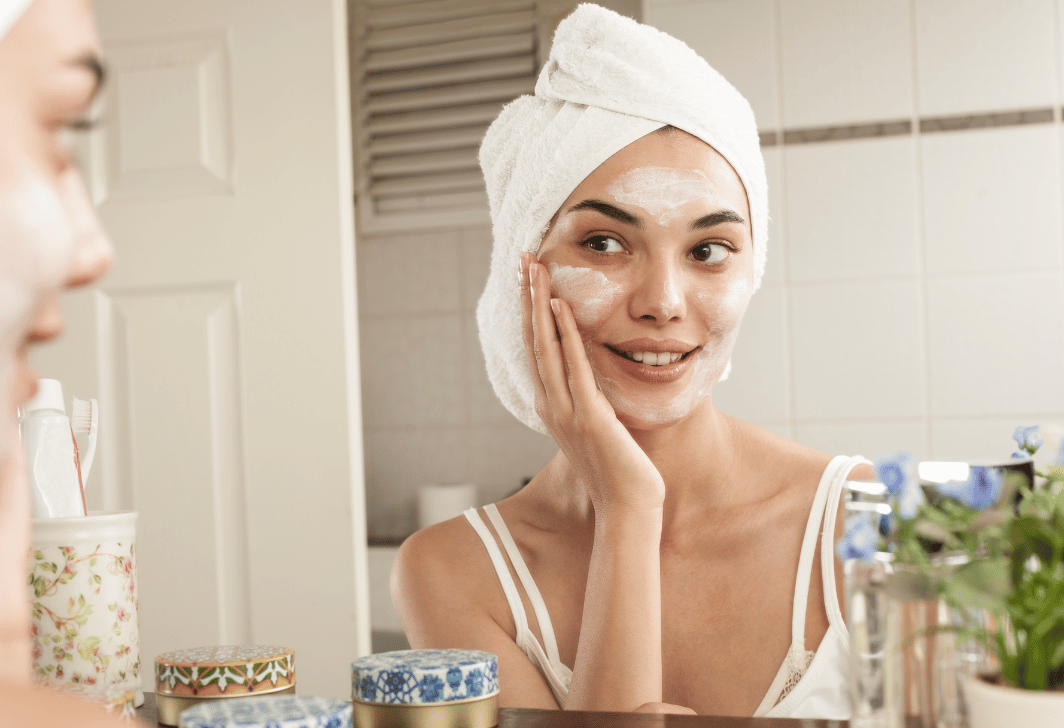
Environmental Protection Tips
After understanding your skincare routine, it’s important to protect your skin from environmental factors. Here are key strategies to shield your skin naturally:
- Use natural barriers like cotton scarves and hats
- Stay in the shade during peak sun hours (10 AM – 4 PM)
- Keep your skin well-hydrated throughout the day
- Apply natural moisturizers before going outside
Perceiving environmental protection as a daily habit will help you maintain that coveted baby-soft skin.
Natural Sun Protection
Assuming you want to protect your skin naturally from the sun, start by incorporating food-based sun protection into your diet. Foods rich in beta-carotene, like carrots and sweet potatoes, can boost your skin’s natural defense against UV rays by up to 20%. You can also apply natural sunscreens like coconut oil, which offers an SPF of 4-5.
If you’re seeking additional protection, remember that keeping your skin well-moisturized can be a first line of defense. Bio-Oil Skincare Oil not only hydrates but also provides a subtle barrier against environmental stressors, making it an excellent choice for outdoor days.
Weather Defense Strategies
On cold or windy days, your skin needs extra protection from harsh elements. Create a protective barrier by applying natural oils like jojoba or argan oil before stepping outside. These oils can lock in moisture for up to 8 hours while shielding your skin from environmental damage. For additional tips on maintaining your skin’s barrier, explore How to Keep Your Skin Resilient in Winter.
To enhance your weather defense routine, consider using a humidifier when indoor heating systems are running. This can help maintain optimal skin moisture levels of 40-60% humidity, preventing your skin from becoming dry and irritated. For more on hydration, check out our Guide On Maintaining Moisture Indoors.
Indoor Air Quality Considerations
There’s a direct connection between indoor air quality and your skin’s health. Poor air quality can lead to premature aging and skin irritation. Keep your indoor spaces well-ventilated and consider adding air-purifying plants like aloe vera or spider plants to naturally filter the air. Find out more in our post on Natural Ways to Improve Indoor Air for Better Skin.
This approach to maintaining good indoor air quality can be supported by regular cleaning and avoiding harsh chemical cleaners. Instead, opt for natural cleaning solutions like vinegar and baking soda, which won’t release harmful toxins that could affect your skin’s health. For tips on safe cleaning, refer to Eco-Friendly Home Cleaning Essentials.
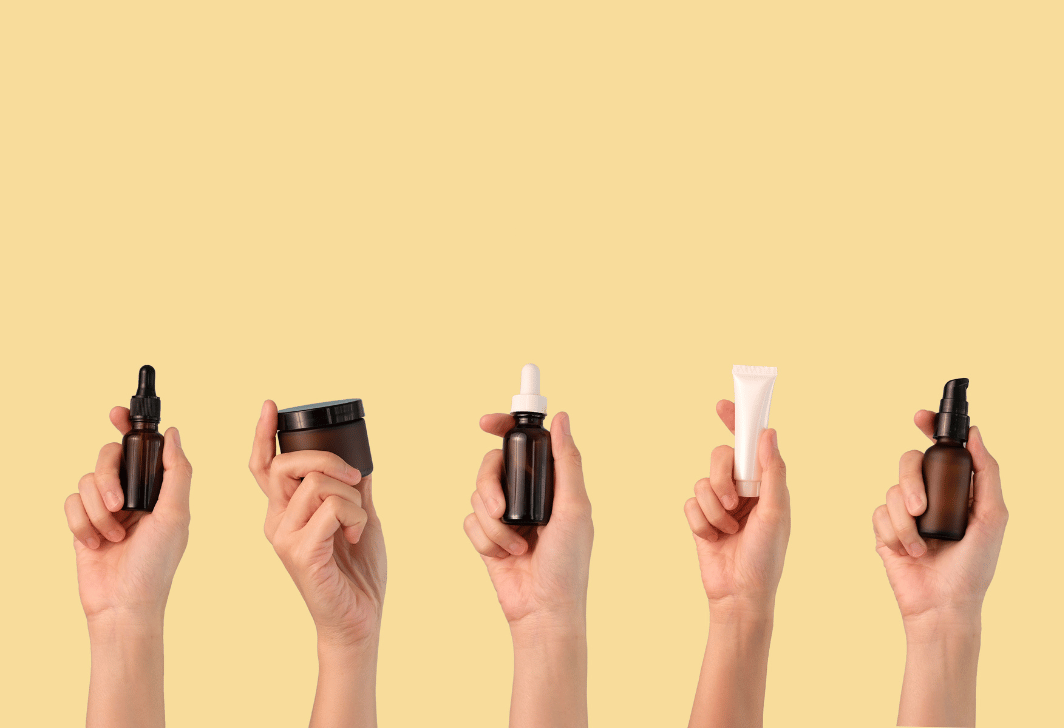
Lifestyle Factors for Soft Skin
Not all skincare happens in the bathroom—your daily habits play a vital role in achieving that coveted baby-soft skin. Your lifestyle choices directly impact your skin’s health and appearance through hormone balance, cell regeneration, and natural oil production. Knowing how to optimize these factors can make a significant difference in your skincare journey. For guidance on creating skin-friendly habits, check out Daily Routines That Transform Your Skin.
Sleep and Skin Health
For optimal skin health, 7-9 hours of quality sleep is vital. During deep sleep, your body increases the production of collagen and repairs damaged skin cells. Your skin’s blood flow also increases, giving you that fresh, glowing appearance when you wake up well-rested.
When you sleep, your skin goes into recovery mode, with cell regeneration occurring three times faster than during waking hours. Creating a consistent bedtime routine and sleeping on a clean silk or cotton pillowcase can enhance these natural healing processes. Explore more ways to boost skin health overnight in Top Nighttime 5 Tips for Glowing Skin.
Stress Management
One of the biggest enemies of soft, healthy skin is excessive stress. When you’re stressed, your body produces more cortisol, which can lead to increased oil production, inflammation, and slower skin healing.
This connection between stress and skin health means incorporating stress-reduction techniques into your daily routine is vital. Activities like meditation, yoga, or simple deep breathing exercises can help maintain balanced cortisol levels and promote healthier skin. For ideas, see our Simple Stress-Busting Techniques for Radiant Skin.
Exercise Benefits
Health experts recommend at least 150 minutes of moderate exercise weekly for improved skin health. Regular physical activity increases blood circulation, which helps deliver oxygen and nutrients to your skin cells while removing toxins.
It’s worth noting that exercise promotes the production of natural antioxidants in your body, which help protect your skin from environmental damage and aging. Just make sure to cleanse your skin properly after working out to prevent breakouts and maintain that healthy glow. Discover more in our post on How Exercise Boosts Skin Vitality.
- Maintain a consistent sleep schedule
- Practice daily stress management
- Exercise regularly
- Stay hydrated throughout the day
- Protect your skin from sun damage
- Follow a balanced diet

Daily Skincare Routine Building
Your path to baby-soft skin starts with establishing a consistent skincare routine. By following How To Get Smooth Skin in 6 Steps, you’ll discover that achieving that dreamy texture isn’t as complicated as you might think. The key is to maintain regularity and use gentle, natural products that won’t strip your skin of its imperative oils.
Morning Rituals
An effective morning routine sets the tone for healthy, glowing skin throughout the day. Start by cleansing your face with lukewarm water and a mild, pH-balanced cleanser to remove any overnight buildup without disturbing your skin’s natural barrier. For tips on finding the best cleanser, check out Choosing the Right Cleanser for Your Skin Type.
After cleansing, apply a lightweight, natural moisturizer while your skin is still slightly damp to lock in hydration. Don’t forget to apply broad-spectrum sunscreen with at least SPF 30, even on cloudy days, to protect your skin from harmful UV rays. Discover more ways to shield your skin in Essential Sun Protection Tips for Lasting Skin Health.
Evening Care Steps
Assuming you’ve had a long day, your evening skincare routine should focus on thorough cleansing and repair. Double cleansing is particularly important if you wear makeup or sunscreen, starting with an oil-based cleanser followed by a water-based one. For a step-by-step guide, see The Ultimate Guide to Double Cleansing.
Morning and evening routines differ mainly in their focus—while mornings are about protection, evenings are perfect for deeper treatments. Consider incorporating natural ingredients like honey or aloe vera into your nighttime routine for their healing and moisturizing properties. Discover other natural nighttime options in Top Ingredients for Overnight Skin Repair.
Weekly Special Care
The weekend is your time to give your skin some extra attention through special treatments. Schedule a gentle exfoliation session using natural scrubs like oatmeal or sugar mixed with honey to remove dead skin cells. Be careful not to over-exfoliate, as this can damage your skin’s protective barrier. For more on safe exfoliation, visit How to Exfoliate Without Irritating Your Skin.
Plus, treat yourself to a natural face mask once or twice a week. You can create masks using ingredients from your kitchen like mashed avocado, yogurt, or banana. These homemade treatments are rich in vitamins and minerals that nourish your skin while being completely natural and free from harsh chemicals. For additional mask ideas, explore DIY Face Masks for Glowing Skin.
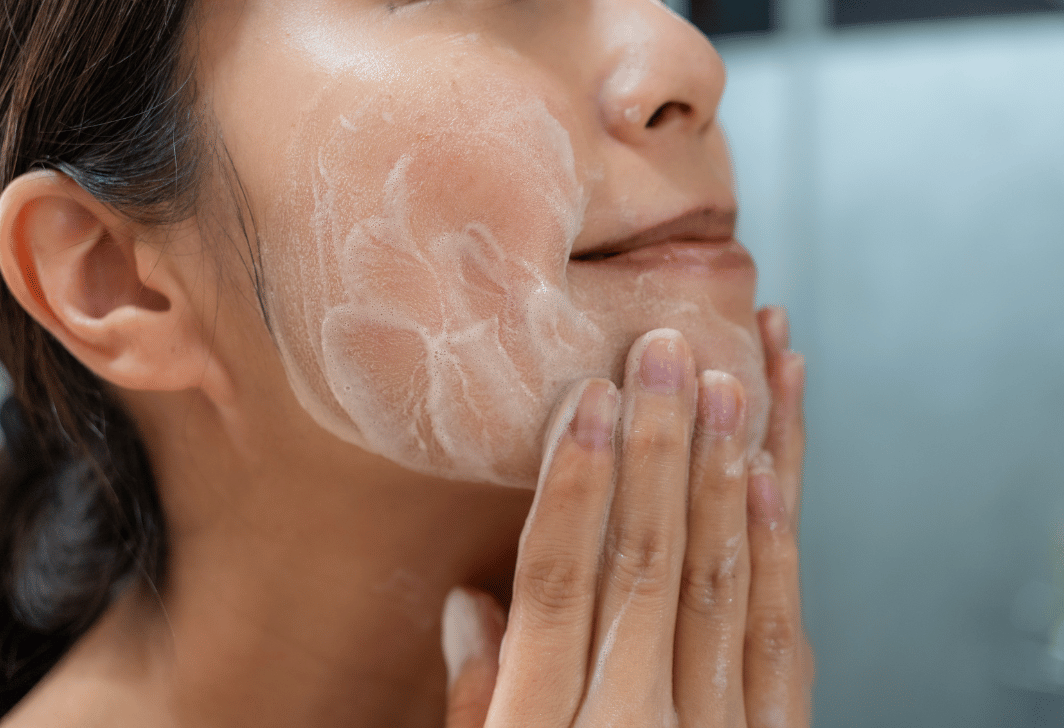
Seasonal Skin Care Adjustments
Summer Care Tips
For optimal skin protection during hot months, you’ll need to adapt your skincare routine to combat increased sun exposure and humidity. Focus on lightweight, non-comedogenic products that won’t clog your pores while maintaining adequate hydration. Your morning routine should always include a broad-spectrum sunscreen with at least SPF 30, reapplied every 2-3 hours when outdoors. For more on summer skincare essentials, see our Ultimate Guide to Sun Protection.
- Use gentle, water-based cleansers
- Apply antioxidant-rich serums
- Choose oil-free moisturizers
- Incorporate cooling aloe vera
- Stay hydrated internally
Perceiving changes in your skin during summer requires constant attention to prevent sun damage and maintain that baby-soft texture. Explore How to Keep Your Skin Baby-Soft All Summer for more ideas.
Winter Protection Methods
Even in colder months, your skin needs extra attention to combat harsh winds and dry indoor heating. Your winter skincare routine should focus on intensive moisturizing and barrier protection. Consider using richer creams and incorporating natural oils like jojoba or argan oil into your daily regimen. For details on strengthening your skin barrier, read Maintaining Your Skin’s Moisture Barrier in Winter.
Summer might be harsh on your skin, but winter can be equally challenging. During these months, it’s beneficial to limit hot showers and use humidifiers to maintain optimal moisture levels in your environment. Your skin barrier becomes more vulnerable in winter, making it important to provide extra protection.
Transitional Season Approaches
Care during spring and fall requires a balanced approach as your skin adjusts to changing temperatures and humidity levels. You’ll want to gradually modify your skincare routine, switching between lighter and heavier products as needed. These seasons are perfect for introducing gentle exfoliation and hydrating masks to maintain that coveted baby-soft texture.
Plus, transitional seasons offer the perfect opportunity to evaluate and adjust your skincare routine. Consider incorporating products with adaptogenic ingredients that help your skin maintain balance despite environmental changes. Pay special attention to any skin sensitivity that might arise during these seasonal shifts. For more tips, see Adapting Your Skincare for Changing Seasons.

Troubleshooting Common Issues
After trying various natural methods to achieve baby-soft skin, you might encounter some challenges along the way. Understanding how to address these common issues will help you maintain your skincare routine effectively. For more comprehensive guidance, check out How to Get Baby Soft Skin on Your Entire Body as Spring Approaches.
Dealing with Dry Patches
Troubleshooting dry patches requires a targeted approach. When you notice persistently dry areas, increase your moisturizing frequency to 2-3 times daily and focus on these specific spots. Apply natural oils like coconut or jojoba immediately after bathing while your skin is still damp. For more on tackling dry skin, see our Comprehensive Guide to Hydrating Dry Skin.
If your dry patches persist, consider using a gentle exfoliating treatment once or twice weekly, followed by a rich, natural moisturizer containing ingredients like shea butter or hyaluronic acid. This combination helps remove dead skin cells while providing intense hydration. Discover more in How to Choose the Best Moisturizer for Dry Patches.
Addressing Rough Texture
Rough skin texture can be improved through consistent care and the right techniques. Start by incorporating gentle circular motions during cleansing and avoid using hot water, which can strip your skin of natural oils. Regular use of natural exfoliants like sugar scrubs or oatmeal can help smooth out uneven texture.
Issues with rough texture often stem from dehydration and environmental factors. Maintaining proper hydration by drinking at least 8 glasses of water daily can significantly improve your skin’s texture from within. For more on enhancing texture, explore our Tips for Achieving Smoother Skin.
Managing Sensitivity
Even the most gentle skincare routine can sometimes lead to sensitivity. If you notice any irritation, immediately discontinue using new products and stick to a basic, fragrance-free routine until your skin calms down. Pay attention to how your skin reacts to different ingredients and keep track of any triggers.
Patches of sensitivity can be managed by using natural, anti-inflammatory ingredients like aloe vera or chamomile. Always perform a patch test before trying new products and introduce them gradually into your skincare routine to minimize the risk of adverse reactions. For tips on soothing sensitive skin, read Natural Remedies for Sensitive Skin Care.
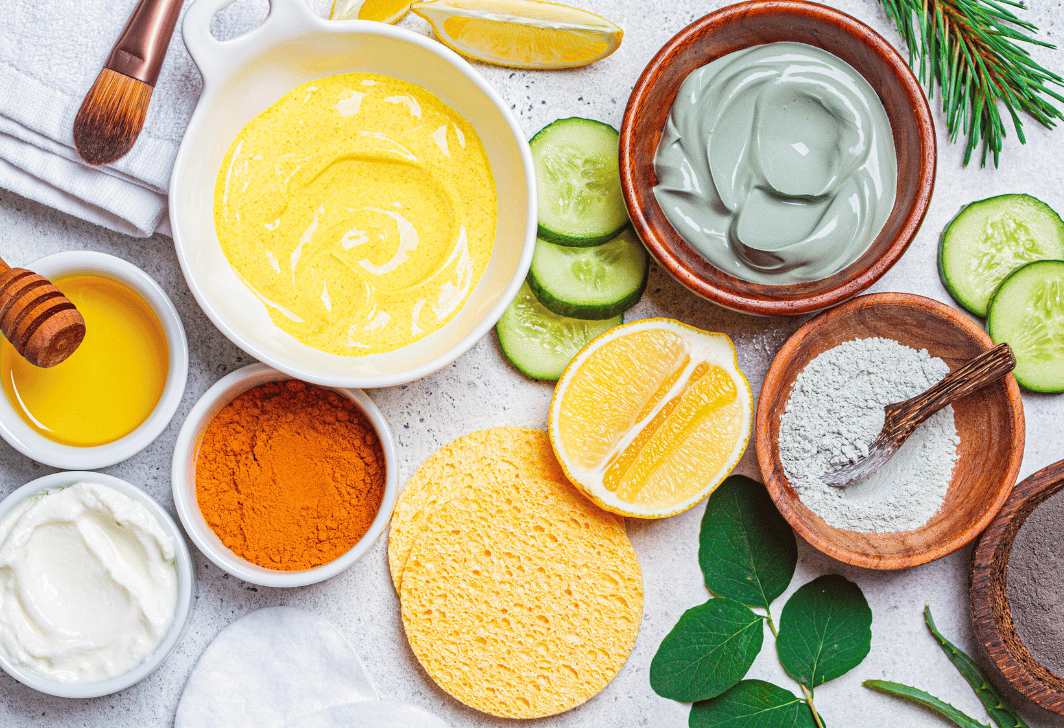
Maintaining Results Long-Term
To keep your skin baby-soft and glowing for the long haul, you’ll need to develop sustainable skincare habits and maintain them consistently. Making these practices a natural part of your daily routine will help you achieve lasting results. For more on starting a skin-friendly routine, check out How to Build Lasting Skincare Habits.
Consistency Tips
There’s no magic shortcut to maintaining soft, supple skin—it’s all about staying committed to your skincare routine. Here are some proven ways to stay on track:
- Set daily skincare reminders on your phone
- Keep your natural products visible on your bathroom counter
- Prepare DIY treatments in larger batches to save time
- Schedule your weekly exfoliation sessions
- Partner with a friend for accountability
The most effective way to maintain your results is by making skincare a non-negotiable part of your daily self-care routine. For additional tips, see Simple Hacks for a Consistent Skincare Routine.
Progress Tracking
Progress monitoring helps you stay motivated and adjust your routine as needed. Taking monthly photos in the same lighting and keeping a simple skin journal can help you track improvements in your skin’s texture and appearance.
Tips for effective tracking include taking close-up photos of specific areas, noting changes in skin texture, and recording which natural treatments give you the best results. This data will help you optimize your skincare routine over time. Explore more in Best 5 Tips To Tracking Your Skincare Journey Effectively.
Habit Formation
Some people find it takes about 21 days to form a new habit, but establishing a complete skincare routine might require 2-3 months of consistent practice. Creating positive associations with your skincare routine can make it more enjoyable and sustainable.
It helps to link your skincare routine to existing habits, like applying moisturizer right after showering or doing a face mask while watching your favorite show. Making these connections can help you maintain healthy skin habits naturally and effortlessly. For more ideas on forming skin-healthy habits, read 5 Simple Habit Changes to Transform Your Skin for a Radiant Glow.

To wrap up
Drawing together all these natural skincare tips, you can see that achieving baby-soft skin doesn’t require expensive products or complicated procedures. By incorporating these simple, natural ingredients from your kitchen and maintaining a consistent skincare routine, you’ll be able to transform your skin’s texture and feel the difference within weeks. For more guidance, check out our Natural Skincare Routine Essentials.
Your journey to silky-smooth skin is all about being gentle and patient with your skin while nourishing it with nature’s best offerings. As you make these DIY treatments part of your regular self-care routine, you’ll not only enjoy softer skin but also the satisfaction of knowing exactly what you’re putting on your body. Keep exploring different natural combinations to find what works best for your unique skin type, and enjoy the process of pampering yourself naturally at home.
FAQ:
Q: What are the basic steps for achieving baby-soft skin at home?
A: Start with gentle cleansing using lukewarm water and natural soap, followed by regular exfoliation 2-3 times weekly. Apply a natural moisturizer immediately after bathing, stay hydrated by drinking 8-10 glasses of water daily, and protect your skin from sun exposure. Maintain this routine consistently for optimal results. For additional tips, refer to Achieving Silky Skin with Simple Habits.
Q: Which natural ingredients can I use to make a homemade moisturizer?
A: Create an effective natural moisturizer by combining coconut oil, shea butter, and vitamin E oil. Alternatively, use pure aloe vera gel, honey, or glycerin mixed with rose water. These ingredients provide deep hydration and nourishment without harmful chemicals. For recipe ideas, visit DIY Moisturizers for Softer Skin.
Q: How can I make an effective natural exfoliator at home?
A: Mix 2 tablespoons of brown sugar with 1 tablespoon of honey and olive oil to create a gentle scrub. You can also combine oatmeal with yogurt and mashed banana. These natural exfoliators remove dead skin cells while being gentle enough for regular use. See our guide on Homemade Exfoliants for Smooth Skin.
Q: What foods should I eat to improve my skin’s texture?
A: Include foods rich in omega-3 fatty acids like salmon and walnuts, antioxidant-rich fruits like berries and oranges, and vegetables like spinach and sweet potatoes. Also, incorporate foods high in vitamin E such as almonds and avocados. These nutrients help maintain skin elasticity and promote natural softness. Learn more about skin-nourishing foods in Top Foods for Glowing Skin.
Q: How often should I apply face masks for baby-soft skin?
A: Apply natural face masks 1-2 times per week. Use ingredients like mashed avocado, plain yogurt, honey, or mashed banana. Leave the mask on for 15-20 minutes before rinsing with cool water. Over-application can irritate your skin, so maintain a consistent but moderate schedule. For mask ideas, check out DIY Face Masks for Baby-Soft Skin.
Q: What daily habits can damage skin softness?
A: Hot showers, excessive sun exposure, smoking, lack of sleep, and touching your face frequently can damage skin texture. Using harsh soaps, not removing makeup before bed, and dehydration also contribute to rough skin. Avoid these habits to maintain natural softness. For tips on what to avoid, refer to Common Habits That Harm Your Skin.
Q: How long does it take to achieve noticeably softer skin using natural methods?
A: With consistent care, you can notice improvements in skin texture within 2-3 weeks. However, significant changes typically become visible after 6-8 weeks of following a regular skincare routine. Results vary based on individual skin type, age, and environmental factors. For more on timelines, see How Long Does It Take for Natural Skincare to Show Results?.







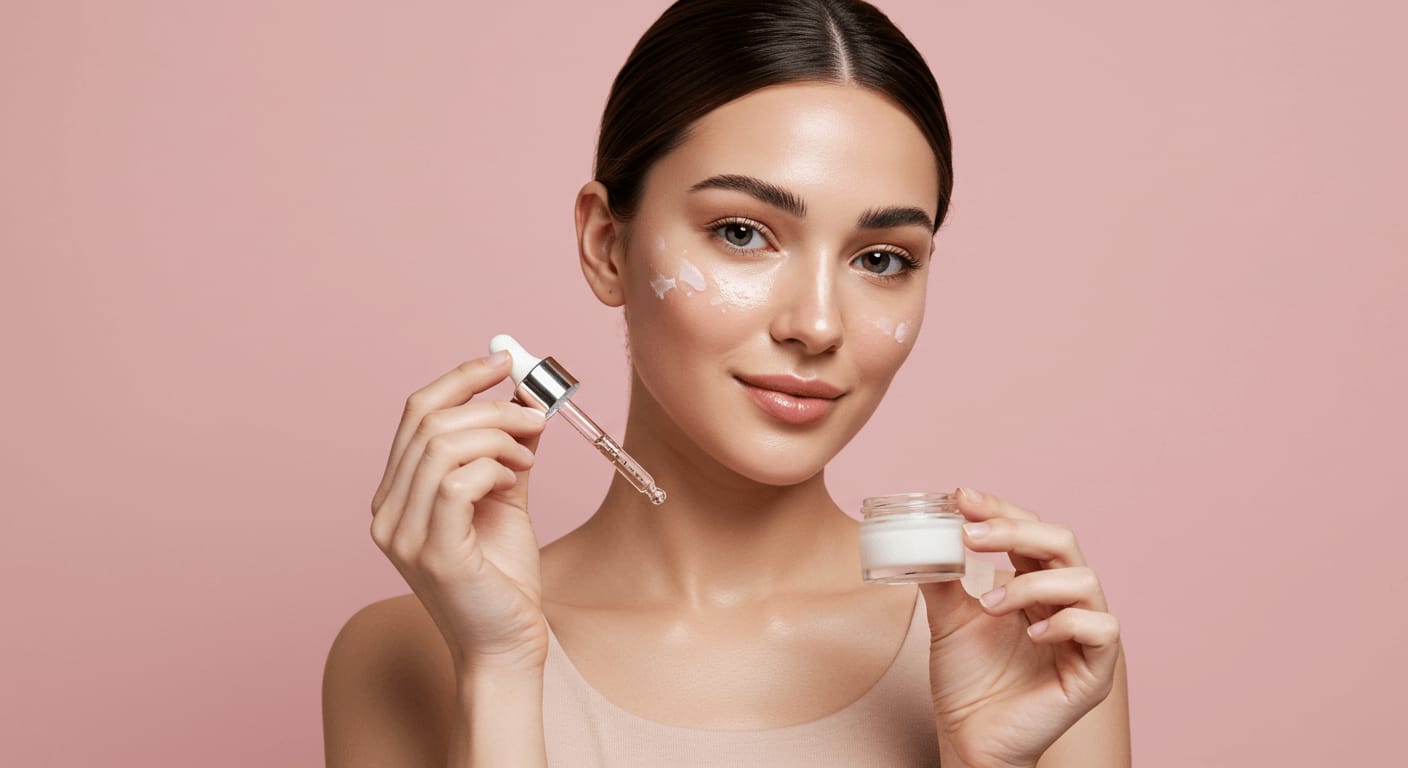

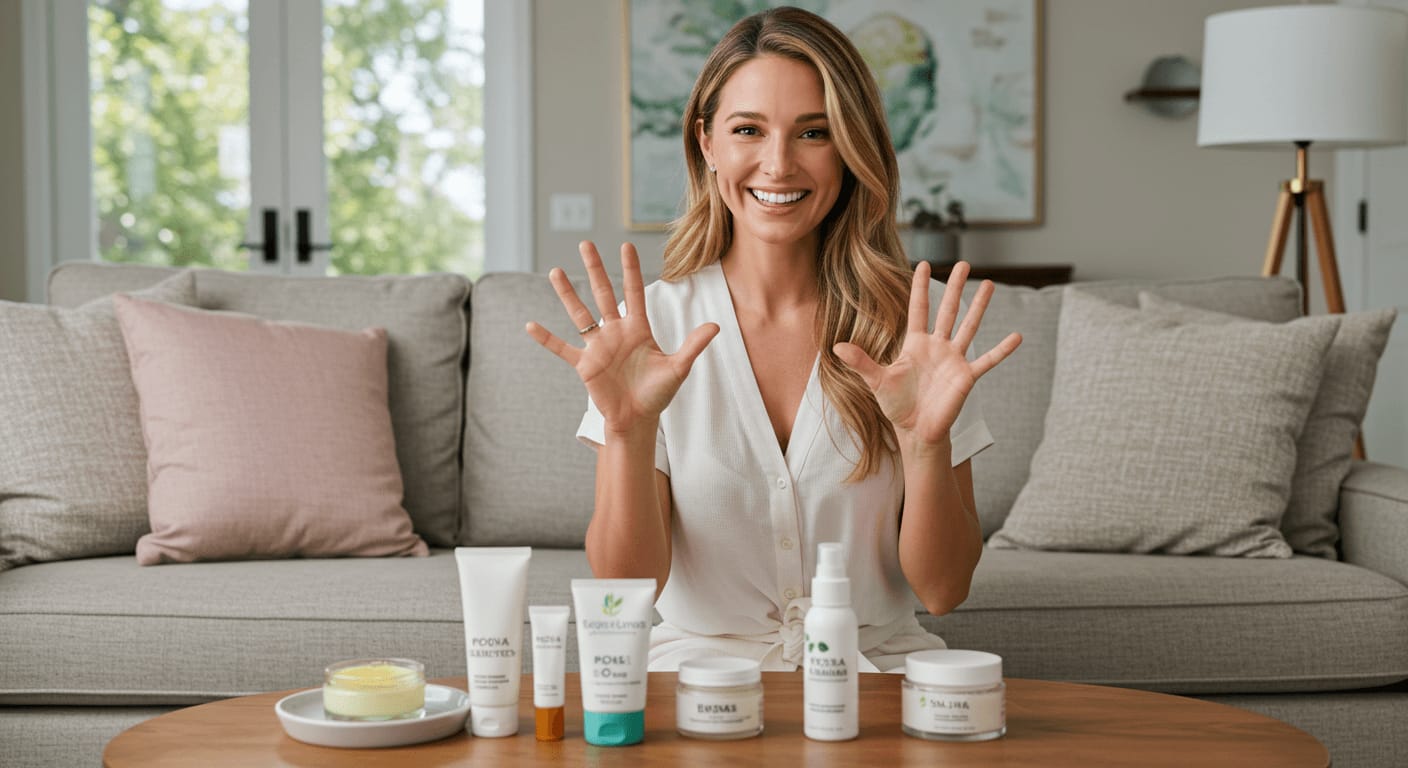





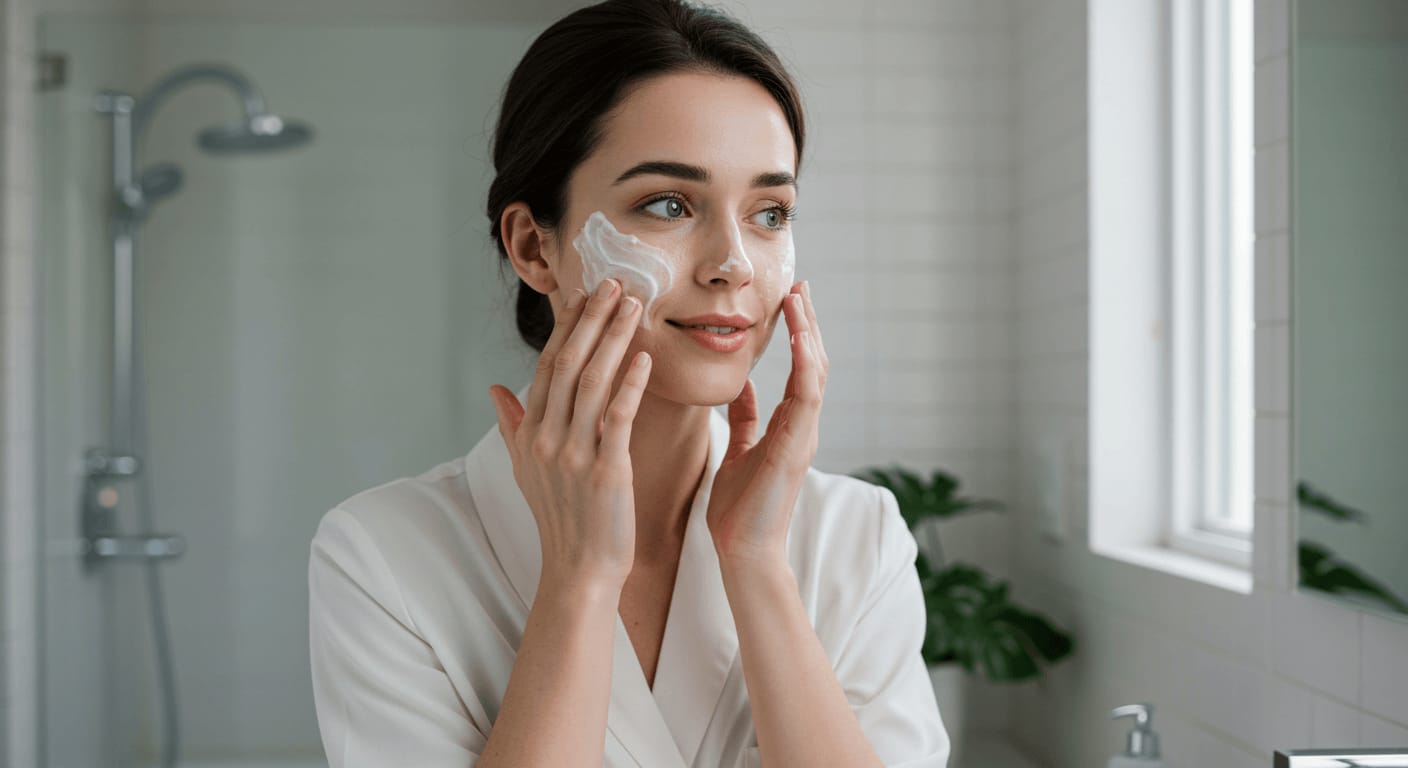








0 Comments